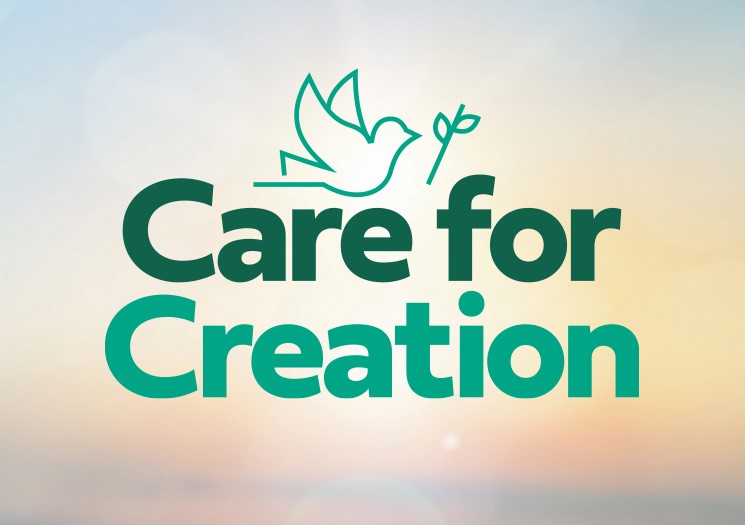- Find a Provider
-
Services
-
Redeemer Health provides compassionate care across every stage of life.
- View all Services
-
- Patients & Visitors
- Locations
- Careers
Care for Creation

Care for Creation is a joint initiative between Redeemer Health and the Sisters of the Redeemer to implement 100% renewable energy in all facilities and properties.
The Sisters of the Redeemer’s reverence for God’s creation has always been part of who they are and how they live. Now, they honor Pope Francis’ Laudato Si’ which effectively brings global attention and urgency to “Care for our Common Home" and 2015 global plea for unified action to reverse “an unprecedented ecological crisis, which involves the ground, air, water, and in general, the ecosystem in which human beings live.”
To guide our goals, decisions and actions, we have adopted Care for Creation’s three pillars of sustainability: Economic Sustainability, Social Sustainability, and Environmental Sustainability.
Our Care for Creation Journey
- Energy-conscious upgrades. Systematic installation of LED light fixtures, motion-detector light switches, low-flow water fixtures with automatic shut-off, and HVAC equipment.
- Sustainable choices at Redeemer Village. Recent renovations at Redeemer Village, our HUD-subsidized community in Huntingdon Valley, included energy-efficient upgrades, such as roofs, windows, and refurbishments in 201 living units.
- Solar panels. Three acres of solar panels are being installed to provide enough sustainable energy to service Redeemer Village.
- Environmentally-friendly farming. Redeemer Valley Farm and the Community Garden at the Spark Transformation Center prioritizes composting, no/low-till gardening to reduce carbon output, no-chemical fertilizers, goat-scaping and rain barrels, onsite soap and lotion production with goat milk, and a direct-to-consumer farm market.
Pope Francis wrote about the care of our common home in his Laudato Si’ in 2015. In it, the pope critiques consumerism and irresponsible development, laments environmental degradation and global warming, and calls all people of the world to take "swift and unified global action." In a video message marking the launch of Laudato Si’, Pope Francis said, “For a long time now, this house that hosts us suffers as a result of wounds that we cause by our predatory attitude, which makes us feel that we are masters of the planet and its resources and authorizes us to make irresponsible use of the goods God has given us. Today, these wounds manifest themselves dramatically in an unprecedented ecological crisis, which involves the ground, air, water and, in general, the ecosystem in which human beings live.”
Pope Francis’ global imperative is the highest platform to which all local, regional, national and international actions respond. The Laudato Si’ Action Platform is an initiative launched by the Vatican to commemorate integral ecology, recognizing the interconnectedness of God, humanity and creation.
The platform identifies seven broad goals and invites the worldwide Catholic community to develop plans to advance these goals. The goals are:
- response to the cry of the earth,
- response to the cry of the poor,
- ecological economics,
- adoption of sustainable lifestyles,
- ecological education,
- ecological spirituality, and
- community engagement and participatory action
The economic sustainability, social sustainability, and environmental sustainability pillars guide goals, decisions and actions.
The Laudato Si’ Action Platform identifies seven sectors in the global Catholic Church, with health care institutions being one. A December 2021 New England Journal of Medicine articled called, “Decarbonizing the U.S. Health Sector – A Call to Action,” noted:
- The U.S. health sector is responsible for an estimated 8.5% of national carbon emissions.
- Between 2010 and 2018, the sector’s greenhouse gas emissions increased by 6%, reaching the highest rate among industrialized nations.
- The U.S. health sector accounts for 25% of global health sector emissions, the highest proportion attributable to any individual country’s health sector.
“I urgently appeal, then, for a new dialogue about how we are shaping the future of our planet,” said Pope Francis. “We need a conversation which includes everyone, since the environmental challenge we are undergoing, and its human roots, concern and affect us all.”
"In view of the beauty of creation, and with the knowledge of the limits of natural resources, we honor and protect our environment by limiting our consumption, by moderating our demands and by handling the gifts of the earth responsibly.” (Constitution of the Sisters of the Redeemer; spiritual text, art. 12)
In light of these words that flow from the Charism and spirituality of the Sisters of the Redeemer to be a healing presence so that all may experience life to the fullness we, as the Redeemer Family, seek to further our efforts to care for creation that sustains life.
We recognize the responsibility we have to further the care of creation, beginning with the provision of educational experiences for all members of the Redeemer Family to increase awareness of climate change and develop a greater consciousness of the current realities that will inspire environmentally sustainable actions. Therefore, we will:
- Seek the expertise of organizations, specifically related to health care, that have a proven track record of successfully utilizing sustainable practices.
- Collaborate with key individuals in the Redeemer family for further education, communication and implementation of sustainable practices.
- Look to the three pillars of sustainability to guide our goals, decisions and actions: economic sustainability, social sustainability, environmental sustainability.

Economic sustainability is the responsibility of businesses and communities. We are encouraged to use our resources responsibly and efficiently. Economic sustainability is designed to support long-term economic growth without harming environmental, social and cultural aspects of our global community.
Social sustainability benefits people. Living sustainably as individuals, families, communities and countries means healthier air and less money spent on healthcare. The eventual goal is that sustainable development will also reduce hunger, poverty and generally provide a better global quality of life.
Environmental sustainability focuses on the state of the planet we leave for future generations. It encourages individuals to live in a way that creates minimal waste and even regenerates some of the resources we use every day.